TRIAL ATTORNEYS
Trust Our Hurst and Dallas-Fort Worth Truck Accident Attorneys When You Are Hit by a Commercial Vehicle
Our truck accident attorneys help victims in the Hurst and Dallas-Fort Worth areas get the settlements they deserve. Whether you were driving your passenger vehicle when struck by an 18-wheeler or operating the semi truck when struck by another vehicle, Samples Ames will make sure your rights are protected.
 Driving on the roadways in Texas can be dangerous, especially when large trucks are sharing the roads with us. We depend on these large trucks to deliver goods to stores so we understand they need to be on our roadways. However, there are unique dangers associated with having so many trucks on our roadways, particularly if drivers have not had enough sleep, if the roadway conditions are dangerous, or if a driver is distracted while behind the wheel.
Driving on the roadways in Texas can be dangerous, especially when large trucks are sharing the roads with us. We depend on these large trucks to deliver goods to stores so we understand they need to be on our roadways. However, there are unique dangers associated with having so many trucks on our roadways, particularly if drivers have not had enough sleep, if the roadway conditions are dangerous, or if a driver is distracted while behind the wheel.
Truck Wrecks in Dallas-Fort Worth
According to the Federal Motor Carrier Safety Administration, there were 589 fatalities in Texas involving 18-wheelers or buses in 2012. The number of fatalities involving 18-wheelers or buses in Texas has nearly doubled since 2009 when there were 299 fatalities.
In crashes between commercial trucks and smaller passenger vehicles, the injuries to car occupants are often very severe. An experienced Dallas-Fort Worth truck accident lawyer, working with other crash experts, can often reconstruct what happened from the evidence at the scene: skid marks, the position of the vehicles when they came to rest, the type and extent of vehicle damage, the type and extent of the injuries, witness testimony, etc. This can show the cause of the crash, which is the first step in establishing the right to compensation.
A Truck Accident is Not Just a Big Crash
Big commercial vehicles are behind some of the most devastating crashes, causing death, debilitating pain, and long-term suffering. For drivers of passenger cars and pick-ups, the rules are found in the simple 90-page Texas Driver Handbook that we read to get our driver’s license. We read the book, we took a driving test, and we got our license. Aside from new pictures and vision tests, we had our license for the rest of our lives. But the rules are different from drivers of 18-wheelers and other large commercial vehicles. The rules are much more extensive, and there are separate rules for the drivers and for the trucking company.
These trucking rules, called the Federal Motor Carrier Safety Regulations (FMCSR), are found in the Federal Motor Carrier Safety Act (more on this below). These rules span 608 pages and are very different from the familiar “rules of the road” that apply to car drivers. In fact, divers of big-rig actually have a different driver’s license than those of us with regular car licenses. This license is referred to as a “CDL,” for Commercial Driver’s License.
The driver of a commercial motor vehicle must meet several important qualifications:
- Read and speak the English language
- Be at least 21 years old
- Be in good health and have a current medical certificate
- Have passed an approved truck driving test
- Have a valid commercial driver’s license
- Read and speak English
- Have the skills needed to properly operate a truck and safely load cargo on the truck and safely secure that cargo
Holders of commercial drivers’ licenses and the trucking company itself must follow these rules to protect us all from serious injury and death. These rules require that the trucking company safely train and supervise each driver, and each driver must operate the truck in strict compliance with the law. And while we are talking about trucks, these rules apply to all commercial vehicles: buses, rock haulers, cement mixers, gasoline and milk tankers, garbage and dump trucks, tow trucks and even fire trucks.
If you were injured in a truck crash or in your workplace, your needs are simple.
You want to get better and you want to be able to pay the bills—for medical treatment, physical therapy, counseling, car repairs, your rental car—as they come your way. When you work with our team, we will do all we can to make sure the liable parties are held accountable and that you get what you need to recover.
Get Help Now
Fill out this short form and we will call you to set up an appointment for a free consultation as soon as possible. You don’t have to suffer anymore. Reach out to us today!
Federal and Texas Regulations and Truck Accidents
In addition to the rear crash guard requirement discussed earlier, there are extensive rules governing big rigs in the federal government’s FMCSR. The FMCSR imposes detailed standards for many aspects of trucking, such as:
- Maintenance and other safety obligations for trucks
- Minimum qualifications for drivers
- Maximum limits on driver hours
- Financial responsibility requirements
- Standards for licensing motor carriers and other entities like freight forwarders
From the perspective of a truck crash victim, the importance of these regulations is that any violation of them which contributes to the crash amounts to negligence. In practical terms, efforts to recover damages for injuries in a truck crash involve making a detailed analysis of the relevant regulations.
The Federal Motor Carrier Safety Regulations contain strict limits on how many hours truck drivers can spend behind the wheel to reduce the potential for fatigue causing a crash. But RV drivers are not subject to these rules which require CDL drivers to maintain a log of their activities.
 AAA, the American Automobile Association, recently published a study showing that sleepy drivers were as dangerous as drunk drivers. With RV drivers, having no regulations to control their conduct and often pressured to get to a vacation destination, the drivers keep driving until there literally fall asleep at the wheel. The danger is clear.
AAA, the American Automobile Association, recently published a study showing that sleepy drivers were as dangerous as drunk drivers. With RV drivers, having no regulations to control their conduct and often pressured to get to a vacation destination, the drivers keep driving until there literally fall asleep at the wheel. The danger is clear.
Also, professional CDL drivers are trained to properly load their trucks, making sure the truck is not overloaded and the load is properly distributed throughout the rig. You have probably seen truck weigh stations on your highway travels. But RV drivers do not have this training or these requirements, and most don’t know they need to actually place their RVs on truck scales to monitor the weight.
18-Wheeler Crashes
Collisions between passenger vehicles and huge “semi” trucks tend to be one-sided fights. Nearly all people killed or injured in collisions that involve “big rig” tractor trailers are occupants of the other vehicle. The mismatch is worse if the collision involves a fully loaded rig and/or one moving at high speed. Because of the great danger to the public that shares the road with the big rigs, it is important to be sure drivers of the rigs are especially competent, adequately trained, and rested enough to avoid accidents from the effects of fatigue. Big rig drivers are held to higher standards than your ordinary non-professional driver.
Unfortunately, these rigs have several characteristics that make them susceptible to crashes:
- They all have blind spots that conceal the presence of other vehicles near them.
- They do not stop as quickly as smaller, lighter vehicles; it takes twice as long to stop a semi going 55 mph as it does to stop a passenger vehicle traveling at the same speed.
- They are difficult to maneuver; a classic example is that many big rig drivers start a turn in one direction by swinging the rig to the opposite direction to get a better turn angle.
Underride Truck Crashes
An underride crash is one in which a smaller vehicle’s front end literally drives under the edge of a larger truck (usually the rear of the trailer). In the typical underride crash, the truck stops very quickly, and the following vehicle continues ahead into the rear of the truck.
 These wrecks are among the deadliest truck crashes because the bottom edge of the truck crushes the top of the smaller vehicle. Passengers in the smaller vehicle usually suffer severe head injuries and may even be decapitated. A significant portion of all deaths in truck crashes occur in underride situations.
These wrecks are among the deadliest truck crashes because the bottom edge of the truck crushes the top of the smaller vehicle. Passengers in the smaller vehicle usually suffer severe head injuries and may even be decapitated. A significant portion of all deaths in truck crashes occur in underride situations.
The usual safety features in vehicles, like airbags and seatbelts, offer no protection to people in an underride crash. In fact, they tend to hold the passenger in place in a position where injury is practically guaranteed. The best protection is for the big truck to have a strong crash guard attached to the back. The guard is a metal bar that extends below the back edge of the big truck, low enough to the ground that the following vehicle’s front end hits the guard and is prevented from sliding under the truck.
These rear crash guards have been required in the United States for a number of years but testing by the Insurance Institute for Highway Safety (IIHS) showed that the U.S. regulation was largely ineffective because the guard it required wasn’t strong enough. The following vehicle would simply crash through it and end up under the truck. A stronger crash guard, like the one required in Canada, is far more successful in preventing underrides.
Over the past few years, truck manufacturers have responded to the high danger of a unique kind of underride crash—the side underride. This happens when an 18-wheeler runs a stop sign and an oncoming passenger car slides under the trailer, potentially decapitating the occupants. But when a manufacturer uses a proper side underride guard, the oncoming car crashes into the guard—where airbags can help—and does not slide under the trailer itself.
What About RV Crashes?
One important exception to the Federal Motor Carrier Safety Regulations is an RV. RV’s are big vehicles—sometimes as long as a tractor-trailer rig—but RV drivers are generally outside the requirements of the Federal Motor Carrier Safety Regulations, with the drivers having no more training than what you and I received as teenagers getting our first driver’s license. RVs include large truck-based vehicles similar to a commercial bus, common motor homes and conversion vans, and trailers pulled behind pickups suck as fifth-wheel trailers and pop-ups.
Who Is Legally Responsible For a Truck Accident in Dallas-Fort Worth?
The commercial long-haul business, in which most 18-wheelers operate, is complex. The truck may be owned by any one of several entities: the driver, a transportation company, the shipper, or a third party. The driver may be working for himself or for any of the entities just mentioned.
Ultimately, the person or business which is legally responsible will depend on both who caused the crash and who may be responsible for that person’s actions. In many cases, this will be one of the following:
- The driver of the truck, even if an employee of a trucking company
- The driver of the truck, even if a contractor to a trucking company
- The driver of a different vehicle involved in the crash
- The trucking company
- A broker
- The shipper
- The company that weighed and loaded the trailer
- The recipient of the goods in the shipment
- A governmental entity that owned the truck
- The trucking company’s insurance company
- The manufacturer of the truck or of one of the truck parts (if the cause of the accident)
It all depends on the circumstances. For example, if the truck was badly loaded by the shipper, the shipper may be liable.
Delivery Truck Accidents
There are several things about delivery trucks that make crashes more likely than with other vehicles. Delivery truck drivers are often under time pressure. Companies like UPS and FedEx have strict standards on how much time it should take their drivers per delivery. Pizza restaurants may promise that delivery will occur within a specific amount of time. Drivers nearing the end of the workday may find that they have limited time to get back to the company’s garage by closing time. The time pressure encourages speeding and may impair the driver’s concentration.
And while they may be smaller than 18-wheelers, delivery trucks still need more room than passenger vehicles to stop and to turn around.
Other aspects of truck delivery that may cause crashes include:
- Double parking the truck while making the delivery, which raises the risk of other vehicles ramming the truck, or pulling around it into the path of another vehicle
- Backing up against traffic to reach a driveway or unloading area
- Sudden and/or frequent stops
- Cargo spilling out the truck’s doors or falling from its roof
- Cargo exceeding the safe weight that the truck’s tires can support, causing blown tires and loss of control
- Unbalanced or unsecured cargo that causes the truck to rollover or swerve
The 2020 Covid-19 pandemic required many delivery companies such as FedEx, Amazon, and UPS to lease trucks from Budget or Enterprise to complete deliveries. The drivers will be unfamiliar with the trucks, and the trucks themselves may lack safety feature that these delivery companies require in their own trucks. The potential for injury is greatly increased in these situations.
Determining Who May Be Liable for Delivery Truck Accidents
Determining who caused the crash doesn’t always tell you who is legally responsible. In many cases, the truck’s owner and/or the driver’s immediate supervisor may be liable due to such things as:
- Requiring an unreasonable number of deliveries
- Supplying a defective vehicle
- Failing to equip the vehicle with proper mirrors and safety equipment
- Requiring that the vehicle be overloaded
- Failing to properly load the vehicle to allow the driver to deliver packages efficiently
Get Qualified Help Early from Our Experienced Hurst / Dallas-Fort Worth Truck Accident Attorneys
.jpg) Evidence about the crash is crucial to establishing your right to recover from the driver, the driver’s employer, or the driver’s supervisor. The closer to the time of the crash you begin collecting that evidence, the better off you will be. That means that you need to get a skilled Dallas-Fort Worth lawyer involved as soon as possible before witness memories start to fade or the scene of the crash undergoes changes that make reconstruction difficult or impossible.
Evidence about the crash is crucial to establishing your right to recover from the driver, the driver’s employer, or the driver’s supervisor. The closer to the time of the crash you begin collecting that evidence, the better off you will be. That means that you need to get a skilled Dallas-Fort Worth lawyer involved as soon as possible before witness memories start to fade or the scene of the crash undergoes changes that make reconstruction difficult or impossible.
Use of alcohol, illegal drugs, prescription drugs and fatigue are the cause of 50% of crashes, according to the U.S. Department of Transportation, with half of those linked to prescription drugs alone. Lawyers experienced in truck cases will know how to properly and thoroughly investigated a truck wreck, including evidence of impairment of the driver by drugs, alcohol, insufficient rest, drowsiness from sleep apnea, or underlying medical conditions.
They will have access to qualified experts to download the “black box” on the truck to determine the driver’s precise actions  before the crash. The black box will tell us whether the driver was accelerating, decelerating, applying the brakes, etc. Similar experts can collect GPS data from the truck to verify where the truck had been, and by comparing time stamps, calculate the trucks speed.
before the crash. The black box will tell us whether the driver was accelerating, decelerating, applying the brakes, etc. Similar experts can collect GPS data from the truck to verify where the truck had been, and by comparing time stamps, calculate the trucks speed.
Accident reconstructionists can be hired by a skilled trucking lawyer to analyze the physical evidence of the scene to tell us how the accident happened, often including the cause of the action and how it could have been prevented. Sometimes, the trucking company may try to blame you for the accident, and qualified experts can also help us counter attempts by truckers to shift the blame.
There are specific statutes in Texas that could impact your truck accident case if you’re injured in a commercial vehicle crash that you should be aware of. Under Texas law, you have only two years from the date of the crash to file a truck wreck injury case. This makes it even more important to contact a team of Farmer’s Branch / Carrollton / Dallas Fort-Worth truck accident attorneys as soon as possible after your crash.
Samples Ames PLLC has the skills and experience to protect your rights and get you the compensation you deserve; whether you were operating the semi-truck or impacted by it. If you or someone you love was injured in a crash involving a truck on Texas roadways, contact us today online or at (817) 605-1505 or (469) 466-2600 for a free consultation, and we can help you determine the best way to proceed.
They helped me to resolve a very traumatic experience and I'm very thankful that they persevered throughout the ordeal, I know that personally I had given up all hope myself. Highly recommend, thanks for the help! Bracken Conner2023-03-29James ames from samples and ames was the best lawyer ever he communicated with Me and always kept me in the situation. He proved time and time again how great of a lawyer he is and did everything it took to make sure I got what I deserved. He made everything so much easier and less stressful and I am so thankful I found him. Hands down couldn't have found a better lawyer to represent me
Bracken Conner2023-03-29James ames from samples and ames was the best lawyer ever he communicated with Me and always kept me in the situation. He proved time and time again how great of a lawyer he is and did everything it took to make sure I got what I deserved. He made everything so much easier and less stressful and I am so thankful I found him. Hands down couldn't have found a better lawyer to represent me Hailey Virginia2023-03-14Samples Ames law firm was friendly and helpful when handling my car accident. James was great at answering all my questions and taking care of my case. The staff was all very nice and knowledgeable.
Hailey Virginia2023-03-14Samples Ames law firm was friendly and helpful when handling my car accident. James was great at answering all my questions and taking care of my case. The staff was all very nice and knowledgeable. Ashley Althoff2023-02-24Mr. Ames and his team were amazing in handling my case. They were very detailed and attentive to my needs and questions. Any concerns I had the team quickly got back with me. It’s always nice to work with people that value quality over quantity.
Ashley Althoff2023-02-24Mr. Ames and his team were amazing in handling my case. They were very detailed and attentive to my needs and questions. Any concerns I had the team quickly got back with me. It’s always nice to work with people that value quality over quantity. KIa Washington2023-02-23I really appreciate them they showed me that they really cared for the client I have always gotten questions about how my daughter was doing after her incident THEY WERE ALL WORTH IT.. they kept also kept me updated on my daughters case I most definitely will be recommending them to friends and family When I finally came into office everyone greeted me with a smile everyone was real nice # YallROCK
KIa Washington2023-02-23I really appreciate them they showed me that they really cared for the client I have always gotten questions about how my daughter was doing after her incident THEY WERE ALL WORTH IT.. they kept also kept me updated on my daughters case I most definitely will be recommending them to friends and family When I finally came into office everyone greeted me with a smile everyone was real nice # YallROCK Danielle Robbins2023-01-27They helped me step by step all through the case
Danielle Robbins2023-01-27They helped me step by step all through the case Sandra Martinez2023-01-05Working with James Ames for my personal injury case was a great experience. I had some outstanding personal debt that delayed the process a long time, but Linda and James went above and beyond to help me get everything taken care of so my case could be settled. Very happy with the work they did and I will recommend them to anyone who may need their services. Thanks James!
Sandra Martinez2023-01-05Working with James Ames for my personal injury case was a great experience. I had some outstanding personal debt that delayed the process a long time, but Linda and James went above and beyond to help me get everything taken care of so my case could be settled. Very happy with the work they did and I will recommend them to anyone who may need their services. Thanks James! Travis S2022-11-14I recommend my attorney he’s a great guy he’s very honest and makes you feel like family
Travis S2022-11-14I recommend my attorney he’s a great guy he’s very honest and makes you feel like family Kyoto2022-09-22I would recommend sample Ames for anyone who need their services,very professional, timely updates,listen to your concerns, and cares about you and your family. Very reliable firm.
Kyoto2022-09-22I would recommend sample Ames for anyone who need their services,very professional, timely updates,listen to your concerns, and cares about you and your family. Very reliable firm. eamodeni2022-08-17Best attorney in town!! Highly recommendable!
eamodeni2022-08-17Best attorney in town!! Highly recommendable! Efren Segura2022-08-16
Efren Segura2022-08-16

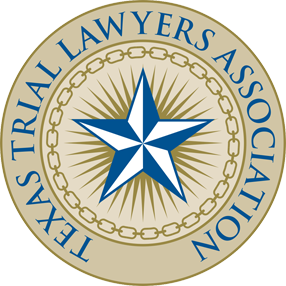
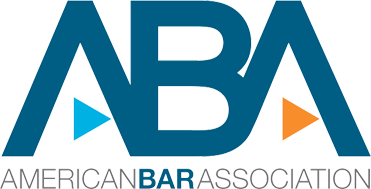
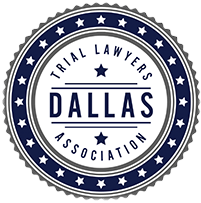

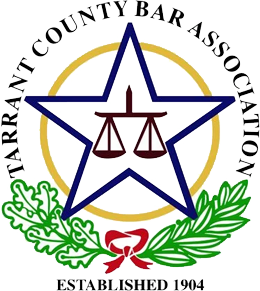

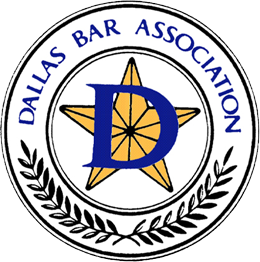
HURST
- 460 West Harwood Road, Hurst, TX 76054
- 469.466.2600
- Office Info
- Get Directions
DALLAS
- 17110 Dallas Parkway, #213, Dallas, TX 75248
- 469.466.2600
- Office Info
- Get Directions


